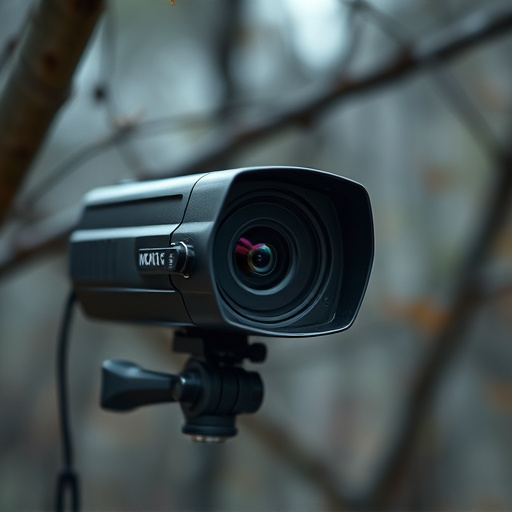Mini surveillance cameras in apartments have become a prevalent concern due to their concealed nature and wide-ranging applications. With high-definition video, night vision, and motion detection, these tiny devices can be easily hidden as everyday items. Tenants and landlords use them for security, but detecting these cameras is crucial for privacy protection. Smartphone apps with advanced image processing help identify hidden lenses, yet this raises legal and ethical debates about individual privacy rights versus surveillance. Balancing empowerment and preservation of civil liberties is essential; homeowners should conduct thorough inspections and consider professional services to safeguard their privacy from covert recording devices like Mini Surveillance Cameras for Apartments.
Uncover the hidden eyes in your home with our guide to spy camera lens detection using just your smartphone. We explore the rise of miniature surveillance cameras and their sneaky uses in apartments, providing insights into advanced technologies and apps designed to detect these hidden lenses. From legal implications to practical tips on prevention, learn how to safeguard your privacy against this modern-day threat. Discover the tools to identify and combat the subtle presence of mini surveillance cameras for apartments.
- Understanding Mini Surveillance Cameras and Their Uses in Apartments
- Detecting Spy Camera Lenses on Your Phone: Technology and Apps
- Legal Considerations and Ethical Implications of Spy Camera Lens Detection
- Tips for Preventing and Locating Hidden Cameras in Your Home or Apartment
Understanding Mini Surveillance Cameras and Their Uses in Apartments
Mini surveillance cameras, also known as covert or hidden cameras, have become increasingly popular among apartment dwellers and property managers due to their compact size and versatile applications. These tiny devices can fit seamlessly into everyday objects like light switches, smoke detectors, or even plant pots, making them near-impossible to detect with the naked eye. With advancements in technology, modern mini surveillance cameras offer high-definition video quality, night vision capabilities, and motion detection, ensuring users capture clear images and footage when needed.
In apartments, mini surveillance cameras are employed for various reasons. Landlords may use them to monitor common areas and ensure the safety of residents, preventing unauthorized access or suspicious activities. Tenants can install them in their homes for personal security, especially in cases where they have concerns about privacy breaches or want to keep an eye on valuable possessions. These cameras provide a sense of peace of mind, allowing users to remotely monitor their surroundings through their smartphone apps, ensuring quick response times in case of any potential issues.
Detecting Spy Camera Lenses on Your Phone: Technology and Apps
Detecting spy camera lenses on your phone has become an essential aspect of modern privacy awareness, especially in sensitive spaces like apartments. Mini surveillance cameras, often hidden in plain sight, have been used for illegal spying and surveillance, making it crucial to have a solution for their detection.
Today, technology offers various methods to identify these covert devices. Smartphone apps play a pivotal role here by leveraging the phone’s camera and image processing capabilities. These apps scan for unusual patterns or artifacts that might indicate the presence of mini surveillance cameras. Some advanced applications even use artificial intelligence to analyze visual data, enhancing accuracy in detecting hidden lenses. This innovative approach ensures individuals can take proactive measures to safeguard their privacy in their own homes.
Legal Considerations and Ethical Implications of Spy Camera Lens Detection
The detection and identification of spy camera lenses using smartphones have raised important legal and ethical questions. While this technology can be a powerful tool for privacy protection, allowing users to uncover hidden surveillance devices in public spaces or private residences, it also invites concerns about civil liberties and privacy rights. In many jurisdictions, there are strict regulations regarding surveillance and the use of hidden cameras, especially in residential areas like apartments. Mini surveillance cameras for apartments, when used without consent, can constitute a breach of privacy and potentially violate laws protecting personal data.
Ethically, the implications extend beyond legal boundaries. The widespread availability of such apps raises questions about consent, transparency, and the potential for misuse. As technology advances, it’s crucial to strike a balance between empowering individuals to protect their privacy and preserving the rights of others to live without constant surveillance. This debate is especially relevant in densely populated urban areas where small, concealed cameras can be easily overlooked but significantly impact individual freedoms.
Tips for Preventing and Locating Hidden Cameras in Your Home or Apartment
Preventing and detecting hidden cameras, especially mini surveillance cameras for apartments, is a growing concern for homeowners and renters alike. A thorough inspection is key to identifying potential privacy invaders. Start by examining any unusual fixtures or devices around your property; look for small gaps or openings where a camera lens might be concealed. Check common areas like door handles, light switches, mirrors, and even curtains—these are favorite hiding spots for miniature cameras.
To enhance your search, use a flashlight and examine walls, ceilings, and floors for any signs of tampering or unusual markings. Consider investing in a professional inspection service that employs specialized equipment to detect hidden cameras, ensuring you live free from unwanted surveillance.
In today’s digital age, understanding and staying ahead of hidden surveillance threats is paramount. This article has explored the world of mini surveillance cameras, their potential uses in apartments, and most importantly, how to detect these devices using your smartphone. With the right technology and apps at hand, you can actively protect your privacy. However, it’s crucial to navigate this landscape with caution, considering both legal and ethical boundaries. By being proactive and informed, individuals can safeguard their personal spaces from unauthorized surveillance, ensuring peace of mind in their homes or apartments.
